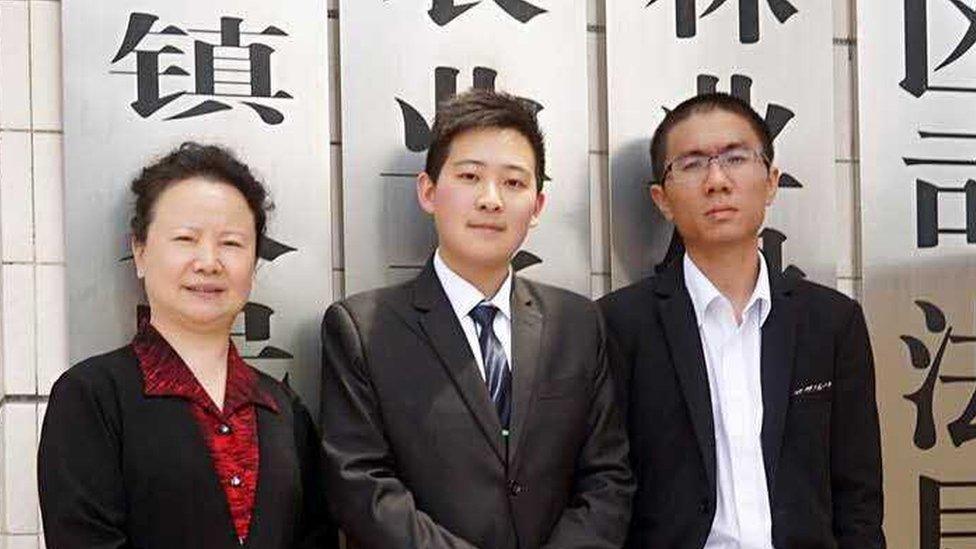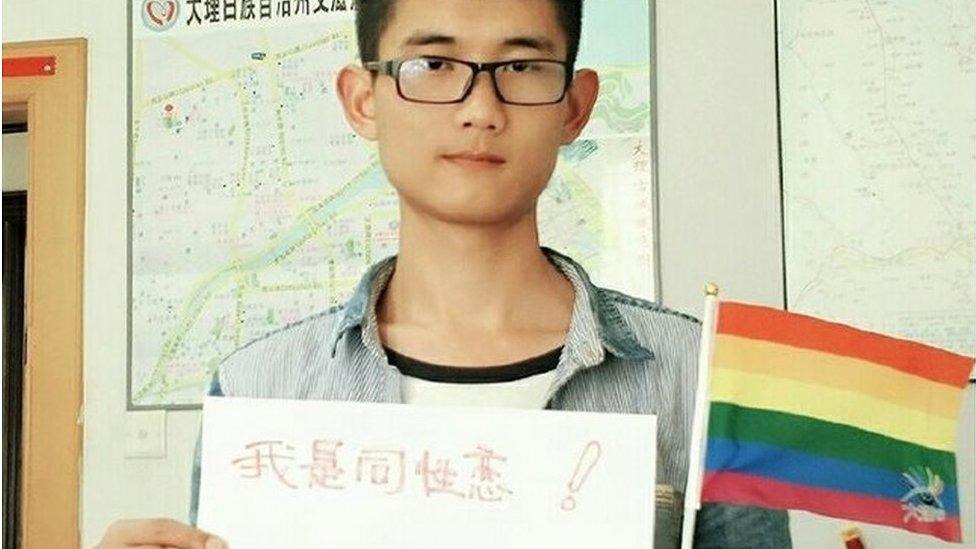China: Limited victory for man in transgender dismissal case
- Published

Mr C, pictured centre with his lawyers, said he was "quite happy" with the outcome
A transgender man has won his case for unfair dismissal at a court in China.
Mr C, who was born female but identifies and dresses as a man, was working at a health centre in Guiyang last year when he was fired.
The court said he had been illegally dismissed, but said there was not enough evidence to rule he had been fired due to discrimination against transgender people.
Mr C told AFP news agency that he was "quite happy" with the outcome.
But he said that the court's decision to reject discrimination as the cause showed that "legislation in this field requires greater attention".
Mr C had only worked at the Ciming Health Check-up Centre for a week when he was told to leave. He says it was because he wore men's clothing.
A news report at the time quoted a manager as saying that his appearance "really didn't fit our standards".
The court awarded him a month's wages, reports said. Mr C took the case to court after losing a complaint at a labour tribunal.
Speaking to the BBC last year, Mr C said he had received a lot of support from China's LGBT community. But he said trying to find a job as a transgender person was hard.
"Within the LGBT community, many people have experienced this after they revealed their sexual orientation," he said. "So you either hide it, and wear their uniforms, or you get rejected."
Conservative attitudes to gay, lesbian, bisexual and transgender issues hold sway in China, which does not allow same-sex marriage. But activists have become more vocal in recent years.
Last year, a court in Changsha city ruled that two gay men could not register as married. Supporters said the fact that the case was heard at all constituted progress.

'Limited victory' - Celia Hatton, BBC Asia analyst
When Mr C's wrongful dismissal case was first accepted by a district court, activists were pleased that his complaint was being taken seriously. That was a victory unto itself, they said.
There was talk that the case could be a legal landmark; a decision that Mr C experienced unfair bias based on his transgender status could set a precedent to protect the labour rights of gay, lesbian and transgender people in China.
In the end the court's ruling was a limited victory - awarding Mr C compensation but not ruling that he was dismissed because of his transgender status.
China's courts are not independent, and a politically sensitive case like this would have attracted the attention of the country's central authorities.
The decision effectively takes the steam out of Mr C's battle. If he had lost, he probably could have appealed, bringing the case to a higher court and gaining even more attention.
Mr C said he was pursuing the case to gain recognition rather than compensation. He and his supporters say the decision will allow hidden discrimination to persist.
- Published13 April 2016

- Published14 April 2016

- Published13 April 2016
